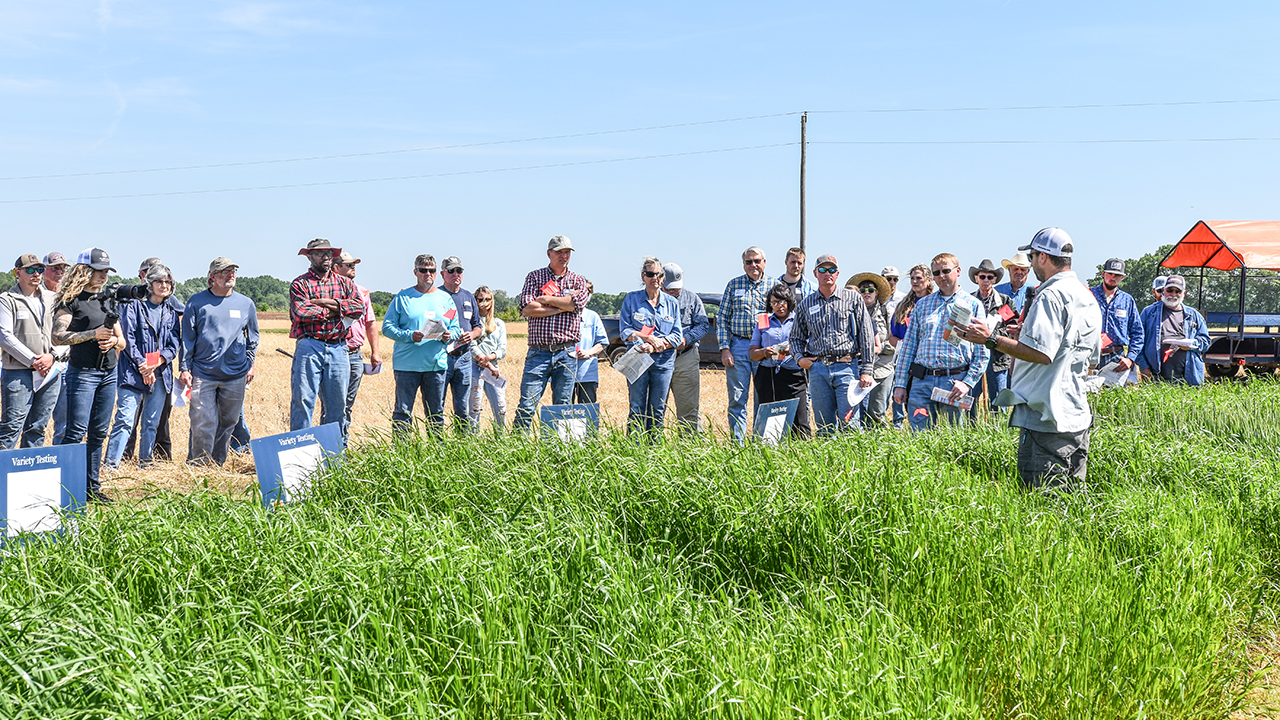Auburn University
Variety Testing Program

Variety selection is the most important decision a farmer can make. If farmers want to be successful, they must ensure that they plant varieties that are well adapted. If a farmer selects the wrong variety, the results can be catastrophic. Typically, farmers do not have the resources to conduct variety trials in addition to their normal growing season activities.
Variety evaluation is also critical to plant breeders, both from universities and industry. Prior to releasing a new variety, these breeders typically evaluate their lines in independent variety trials. This ensures that they have unbiased data from multiple years and locations to support the release of their new variety.
The mission of the Auburn University Variety Testing Program is to provide research-based, unbiased results on the performance of various crop hybrids, cultivars, and varieties to the agricultural community in Alabama. We are intent on conducting these trials in a manner that will result in maximum biological yield through methods common to the top-producing farms in Alabama.
We are committed to providing this information in a timely manner for its use during the decision-making process. The success of the program rests on our ability to help Alabama producers provide a safe, dependable source of food and fiber for all families as well as an economic sustainability for theirs.

Henry Jordan
Variety Testing Manager, Research Associate IV
Subscribe to AU Variety Testing Updates
Annually, the Auburn University Variety Testing Program conducts trials on corn, cotton, soybeans, peanuts, grain sorghum, wheat, barley, oats, triticale, small grain forages, and ryegrass.
Trials are conducted on Auburn University owned and operated agricultural research stations across the major geographical regions of the state. The research conducted at each of these locations can provide stakeholders with data that can be more representative of their growing conditions.
VARIETY CATEGORIES
Performance of Soybean Varieties in Alabama, 2013
PERFORMANCE OF SOYBEAN VARIETIES IN ALABAMA, 2013 K. M. Glass, D.P. Delaney, and Edzard van Santen Advisor, Natl. Res. Prog., Extension Soybean Specialist, and Professor
Evaluations of Corn Hybrids in Alabama, 2013
Selected corn hybrids are evaluated annually by the Alabama Agricultural Experiment Station as a service to producers and industry. These tests are conducted throughout the state in an attempt to determine effects of different climatic factors and soil types on yield....
2013 Alabama Cotton Variety Report
K. M. Glass, C. D. Monks, C. H. Burmester, and Edzard van SantenAdvsior III, Natl. Res. Prog., Associate Professor and Extension Cotton Agronomist, ExtensionAgronomist, and ProfessorINTRODUCTIONThe Alabama Cotton Variety Test is a continuing evaluation of available...
2012-2013 Performance of Small Grain Varieties in Alabama
K.M. Glass, E. van Santen, and K. Bowen Advisor, Natl. Res. Prog. and Professor, Dept. of Agronomy and Soils and Professor, Dept. of Entomology and Plant Pathology, Auburn University, AL 36849. Introduction The large number of commercially available varieties of...
2013 Alabama Performance Comparison of Peanut Varieties
James P. Bostick, Larry W. Wells and Brian E. GambleIntroduction: The number of peanut varieties available to Alabama growers hasincreased in recent years, thus placing greater need for unbiased performancedata regarding varietal selection for production.Production...
Performance of Ryegrass Varieties in Alabama, 2012-2013
IntroductionThe Alabama Ryegrass Variety Evaluation is a continuing evaluation of available varieties andbreeding lines from private companies and state agricultural experiment stations. Experiments are plantedannually in northern, central, and southern locations to...
